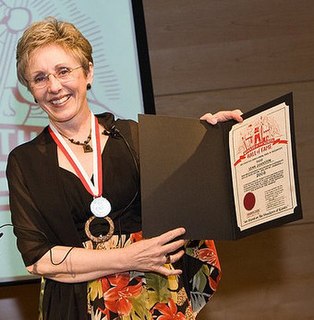A Quote by J. D. Vance
The sometimes-tough love of the Christian faith of my childhood demanded a certain amount of self-reflection and, occasionally, self-criticism.
Related Quotes
If love is the soul of Christian existence, it must be at the heart of every other Christian virtue. Thus, for example, justice without love is legalism; faith without love is ideology; hope without love is self-centeredness; forgiveness without love is self-abasement; fortitude without love is recklessness; generosity without love is extravagance; care without love is mere duty; fidelity without love is servitude. Every virtue is an expression of love. No virtue is really a virtue unless it is permeated, or informed, by love.
Self-interest, to be sure, is one of the most important, but we have many other motives - honesty, self-respect, altruism, love, sympathy, faith, sense of duty, solidarity, loyalty, public-spiritedness, patriotism, and so on - that are sometimes even more important than self-seeking as the driver of our behaviors.
That was one of the big problems in the [Black Panther] Party. Criticism and self-criticism were not encouraged, and the little that was given often wasn’t taken seriously. Constructive criticism and self-criticism are extremely important for any revolutionary organization. Without them, people tend to drown in their mistakes, not learn from them.
Self-criticism is not "love," and it is certainly not indifferent. It's a form of hatred. And when I name that, when I see it for what it is (raw and uncomfortable and saddening), when I refuse to sugar-coat self criticism, judgment, agitation, and constantly trying to improve myself, then I'm one quantum leap closer to freedom.

































